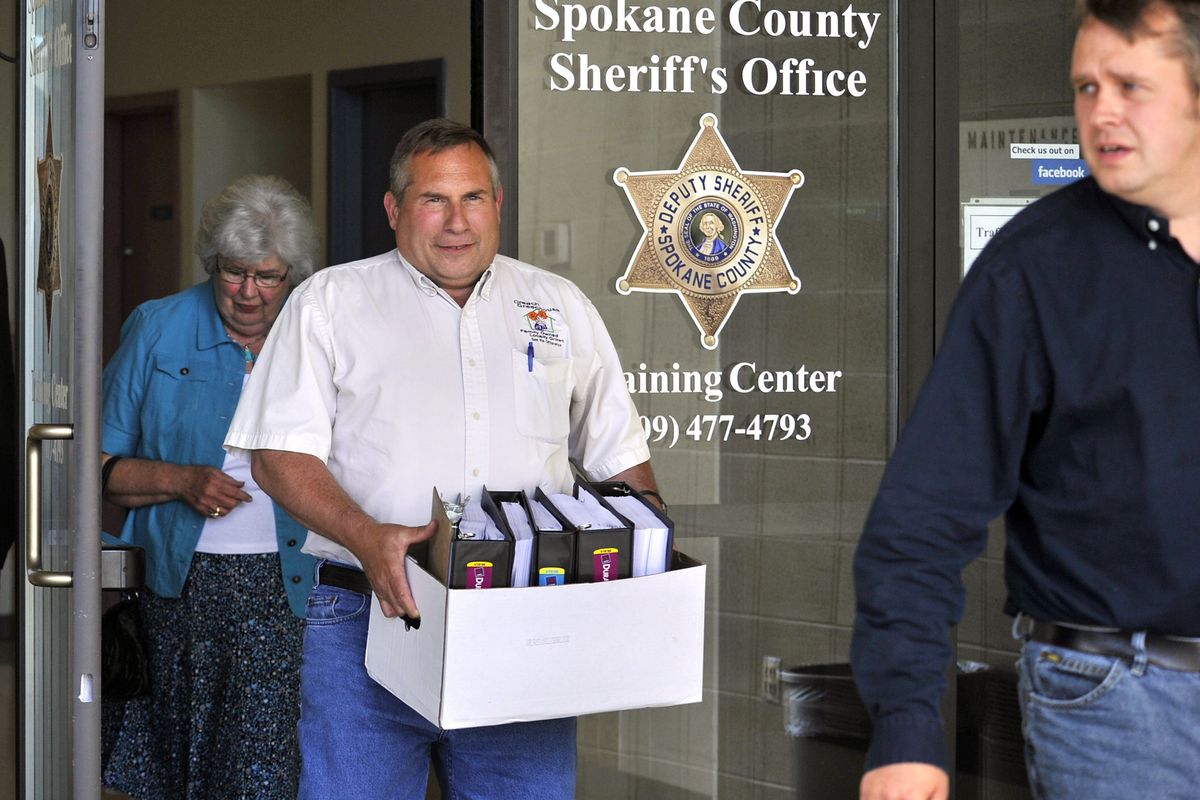Deputy cleared in Creach shooting
Hirzel observed departmental policies, sheriff says

The Spokane County sheriff’s deputy who shot a 74-year-old Spokane Valley pastor last year will face no disciplinary action over the fatal encounter.
Deputy Brian Hirzel followed all departmental policies and procedures during the Aug. 25 encounter with Wayne Scott Creach, Sheriff Ozzie Knezovich said Wednesday in announcing the results of his internal investigation. He met with members of the Creach family earlier in the day to advise them of the findings.
“This was a very tragic situation. I’m saddened for the community. I’m saddened for the Creach family. I’m saddened for law enforcement,” Knezovich said. “But it came down to a matter of choices. For Deputy Hirzel, when (Creach) reached for that weapon, he was faced with a deadly threat.”
The decision disappointed Creach’s relatives, who have long argued that the shooting could have been avoided if Hirzel had not parked an unmarked patrol car unannounced on private property. Alan Creach, the pastor’s son, said that he asked Knezovich if he would be willing to change those practices and that the sheriff refused.
Knezovich “says he’s trying to work with us, but he’s unwilling to do anything to accommodate us,” Alan Creach said. “If you are not willing to do any changes, you will always get the same result. If it was a failure before, it will fail again.”
The internal probe officially concluded the matter after sheriff’s officials reached the same conclusions as the Spokane County prosecutor’s office and the sheriff’s 12-member Citizen Advisory Board.
Knezovich said Hirzel, who has been working desk duty helping detectives, is now free to rejoin his patrol duties anytime between today and September.
The sheriff said he gave Hirzel his choice on when to resume his patrol duties to give him “some normalcy in his life.”
While Hirzel was cleared in the shooting, the internal investigation found two minor violations: The deputy was carrying his badge from his former job in Kootenai County, and he used his department computer to complete his itinerary for a vacation to Las Vegas.
Public outcry over that vacation, which delayed his interview with detectives for more than a week after the shooting, prompted Knezovich to make the only changes that he would recommend following the fatal encounter.
Knezovich pointed out that Hirzel asked to give a formal interview on the night of the shooting but was told that department practice called for a 72-hour delay.
“It should be up to the deputy … not some artificial number when to do an interview,” Knezovich said.
Police officials initially said Hirzel did not provide an interview, then later revealed that Hirzel was allowed to go on vacation days after the shooting. Knezovich said that he learned about the vacation after it had been approved and that Hirzel did give what’s called a tactical interview, which revealed where he was standing when he fired the shot that killed Creach.
The second change the sheriff wants to see: a speedier process by which information about such incidents is given to the public.
“That conversation is vital,” Knezovich said of the quick release of certain details. “My philosophy is that we give as much information as possible without tainting the investigation.”
The shooting occurred after Scott Creach noticed a car next to merchandise in the parking lot of The Plant Farm, 14208 E. Fourth Ave.
Creach, who lived alongside the nursery, armed himself with a .45-caliber pistol – as he previously had done several times during suspicious circumstances on his property – and approached the vehicle.
Hirzel told investigators that he repeatedly ordered the shirtless Creach to drop the gun, but investigators could not find any witnesses who heard any of that exchange.
Only Creach’s wife, Imogene, reported hearing what sounded like her husband yelling out in fear before the shot was fired.
Hirzel said when Creach approached the car, the older man said he didn’t have to drop his gun and mentioned that he had had problems with theft in the past. However, Creach eventually placed the gun in the back waistband of his pants.
Hirzel then ordered Creach onto the ground, but Creach refused. Hirzel told investigators he then struck Creach on the outside of the left knee with a police baton, although the autopsy examination found no corresponding bruising on Creach’s leg.
Creach buckled but did not go down. It was then, Hirzel said, Creach reached for his gun.
“When, when I saw his hand go behind his back and come out with a gun, or the grip of the gun that I saw, there wasn’t a doubt in my mind that he was going to shoot me,” Hirzel told investigators, according to transcripts.
Alan Creach said the family has hired an attorney who is coordinating an investigation. He did not predict what the family would do next or when.
“The community has to ask: Are we satisfied with the end result? Is this how we want law enforcement to be done in Spokane Valley?” he said.